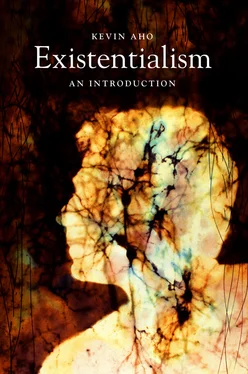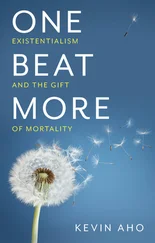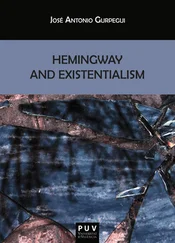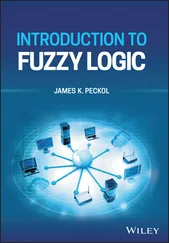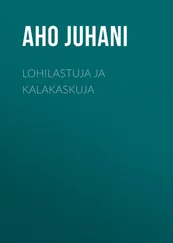Sartre's view of radical freedom is tempered by existentialists like Heidegger and Merleau-Ponty who argue that the meanings we choose to give to things cannot be constituted exclusively by the individual, and thus the individual can never be what Sartre calls the “the incontestable author of an event” (1956, 707). Rather, our choices are limited by our historical situation, a situation that makes it possible for things to mean something to us in the first place. On this view, our freedom is always already embedded in the meanings of an intersubjective world.
In the final chapter of Phenomenology of Perception , Merleau-Ponty outlines his views on freedom. Like Sartre, he argues that there is no pre-given essence that determines us; that freedom is a structure of being human; and that our choices negate or ‘carve out’ the amorphous mass of being by giving meaning to things. Where Merleau-Ponty breaks with Sartre is in the idea that we can create ourselves through the sheer ‘upsurge’ of choice alone. For Merleau-Ponty, in order to make a choice we must first be familiar with the meanings and values of our historical situation (see Cooper 1999, 159–164). The idea, for instance, that an alienated factory worker could somehow nullify himself with an ‘initial choice’ and become a Marxist revolutionary would be impossible. This is because the choice is already a meaningful possibility in the world that the worker has been thrown into. The revolutionary, then, is not the ‘uncontested author’ of his identity who somehow reverses course and radically breaks with his proletarian history. The meanings that he chooses to take over are possibilities made available to him by a shared world, and these historical possibilities are laid out “before any personal decision has been made” (1962, 449). “I am situated in a social environment,” writes Merleau-Ponty, “and my freedom though it may have the power to commit me elsewhere has not the power to transform me instantaneously into what I decide to be” (447).
Here Merleau-Ponty is following Heidegger's interpretation of existence as ek-stasis , that humans have always already ‘ stepped outside beyond ’ themselves to the extent we are bound up in the meanings of our historical situation. “Nothing determines me from outside,” as Merleau-Ponty writes, “not because nothing acts upon me, but because I am from the start outside myself and open to the world” (456). On this account, we can never be the ‘uncontested author’ of our choices and actions because our choices and actions are already embedded in and open to the meanings of a particular history. Ortega y Gasset expresses a similar idea when he claims “man lives in view of the past. Man, in a word, has no nature; what he has is … history. Expressed differently: what nature is to things, history … is to man” (1941, 217). It is true, on this account, that we are self-making , but it is also true that we are already made . We create ourselves through our own meaning-giving choices and interpretations, but we are also already created because we inhabit a historical world that endows our choices and interpretations with the meaning that they have. “We exist in both ways at once ,” says Merleau-Ponty. “We choose the world and the world chooses us” (1962, 453–454).
Beauvoir will make a related claim in The Second Sex when she develops the idea that the human being “is not a thing , [but] a situation” (1952, 38). Understood this way, Beauvoir suggests that women (and members of other marginalized or oppressed groups) cannot exhibit ‘radical’ or ‘absolute’ freedom because they are always constrained by their historical situation, one that, in this case, compels women to see themselves as mere things or passive objects. Of course, as an existentialist, Beauvoir rejects the idea that women are inferior to men because of pre-given biological differences. Beauvoir does not deny these differences but argues that they do not essentially define woman as inferior to man. Following Sartre, she claims that the human being “is defined as a being who is not fixed, who makes [herself] what [she] is. … Woman [then] is not a completed reality, but rather a becoming.” This means the anatomical “body is not enough to define her as a woman” (38). The woman, on this view, is not born but made through her own meaning-giving choices. But her choices are limited in a way that the man's is not because she inhabits a historical situation that is patriarchal. As a result, she tends to interpret herself as a powerless thing or object. She is self-making, but because of her oppressive situation she interprets herself as being already made.
What is missing from these accounts — and existentialist accounts of freedom in general — is an analysis of the fundamental role that biology and instinct plays in determining our choices. Nietzsche's reflections on freedom are especially important in this regard, not only because he acknowledges the significance of our biological nature and brings to light the complex ways in which instinctual forces work behind our backs to make decisions for us. He also offers a seminal critique of moralistic conceptions of free will and provides his own version of situated freedom, one that is rooted in the polymorphous drives of the body.
Of all the so-called existentialists, Nietzsche is alone in emphasizing the importance of the biological body, where biology is understood in terms of the dynamic confluence of physiological drives and instincts that unconsciously guide our choices and actions. For existentialists like Nietzsche, the tendency in the West has been to “despise the body” (2006, I, 4) and to privilege the cognizing mind. But this disembodied standpoint is an illusion. We are, according to Nietzsche, nothing more than the “totality of [bodily] drives that constitute [our] being” (1997, 119, my emphasis), and the idea that we have transparent mastery over our thoughts and actions is a fiction. This is why Nietzsche writes, “Behind your thoughts and feelings stands a powerful commander, an unknown wise man — he is called a self. He lives in your body; he is your body ” (2006, 1, 4). On Nietzsche's account, traditional talk about self-awareness, free will, and moral responsibility are forms of self-deception. “Our moral judgments and evaluations,” he writes, “are only images and fantasies based on a physiological process unknown to us, a kind of acquired language for designating certain nervous stimuli” (1997, 119). The self-consciousness that we commonly associate with acts of will is actually parasitic on a deeper kind of instinctive animal consciousness that is fundamentally unselfconscious . In this sense, we are continually thinking and acting without even knowing it because the “thinking that rises to consciousness is only the smallest part” of our agency (1995, 354). This means that the usual conception of the will as an autonomous faculty that serves as the primary cause of our thoughts and actions is an “error,” where we mistakenly “believe ourselves to be causal in the act of willing: [where] we at least thought that we were there, catching causality in the act ” (1990, V, 3). We cannot be autonomous agents, according to Nietzsche, because we do not have control of our own thoughts. “A thought comes when ‘it’ will, not when ‘I’ want it to” (1998, I, 17). Indeed, the fact that we have historically assigned causal agency to the will is itself the product of instinct, what Nietzsche calls “the cause creating drive” (1990, V, 5) that emerges from a conditioned need to give reasons and attribute causes to events. This instinct serves a practical function in the preservation of the species because it “soothes” and “liberates” us (V, 5) from the horrifying fact that there is no underlying explanation, cause, or meaning to existence. But it is also an ‘ instinct of weakness ’ because it results in our standardized and herd-like tendencies.
Читать дальше
